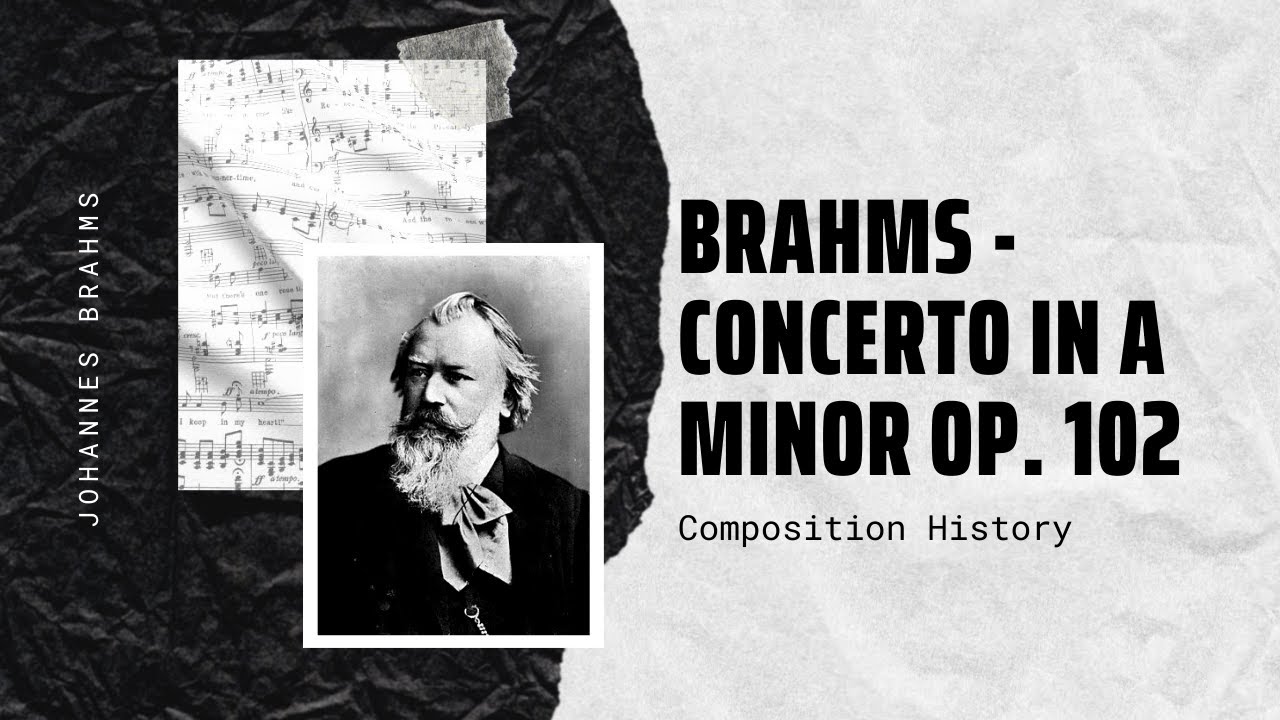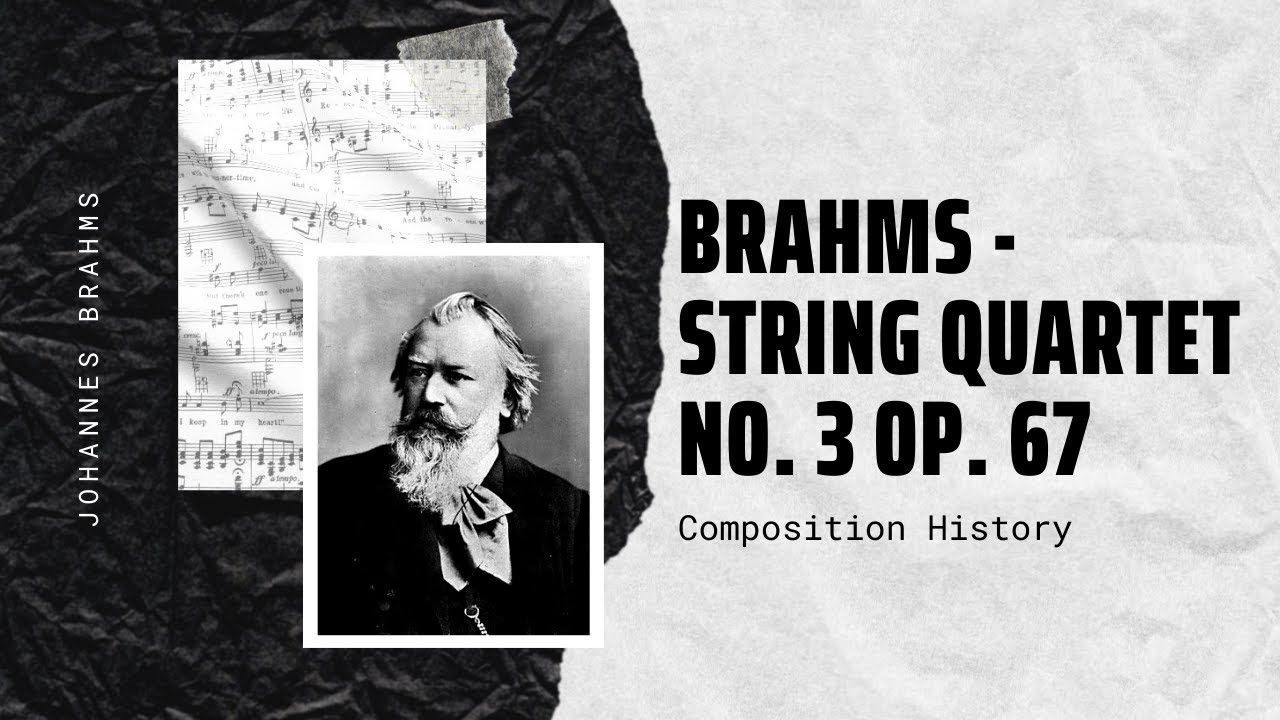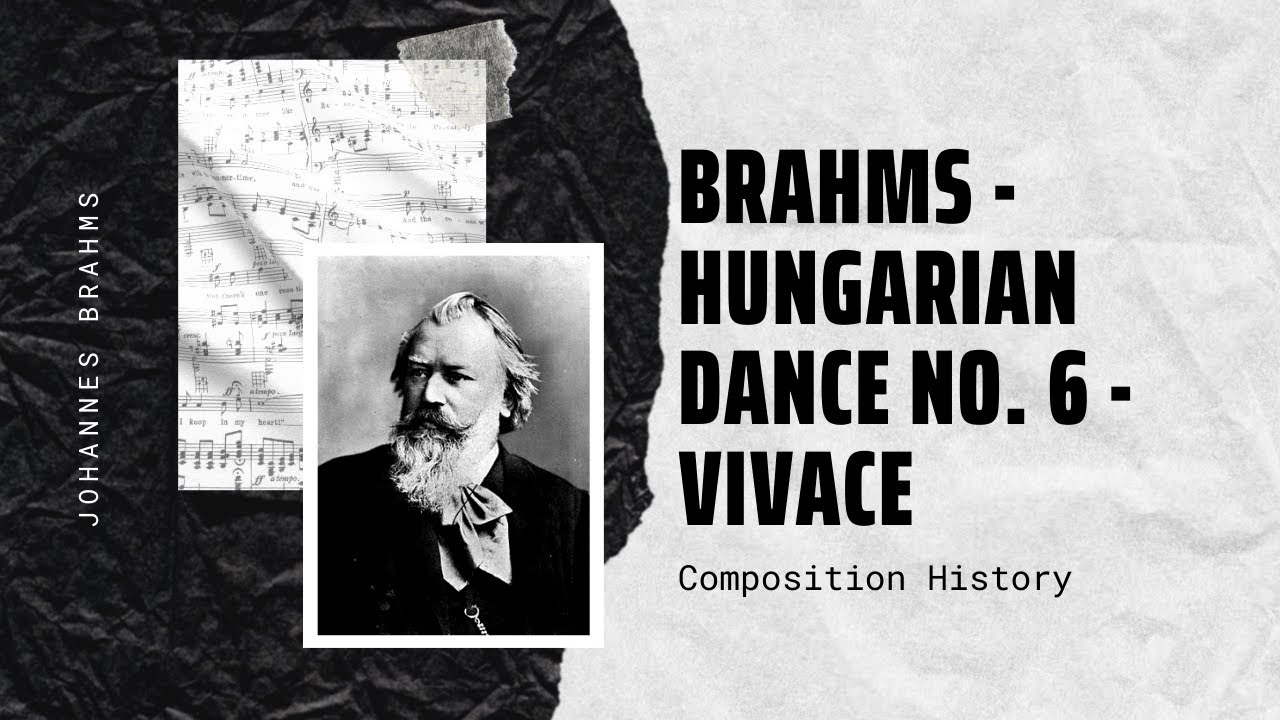
Brahms – Sixteen Waltzes Op. 39
Sixteen Waltzes (German; Sechzehn Walzer), Op. 39, is a set of 16 short waltzes for piano written by Johannes Brahms. They were composed in 1865,[…]

Brahms – 4 Ballades Op. 10 No. 1 – Andante
The Ballades, Op. 10, are lyrical piano pieces written by Johannes Brahms during his youth. They were dated 1854 and were dedicated to his friend[…]

Brahms – Concerto in A Minor Op. 102
Johannes Brahms – Concerto in A Minor Op. 102 The Double Concerto in A minor, Op. 102, by Johannes Brahms is a concerto for violin, cello[…]

Brahms – String Quartet No. 3 Op. 67
Johannes Brahms – String Quartet No. 3 Op. 67 The String Quartet No. 3 in B♭ major, Op. 67, was composed by Johannes Brahms in the[…]

Brahms – Hungarian Dance No. 6 – Vivace in D flat major
Johannes Brahms – Hungarian Dance No. 6 – Vivace in D flat major The Hungarian Dances (German: Ungarische Tänze) by Johannes Brahms (WoO 1), are a[…]

Brahms – Violin Sonata No. 2 Op. 100
Johannes Brahms – Violin Sonata No. 2 Op. 100 The Violin Sonata No. 2 in A major, Op. 100 (“Thun” or “Meistersinger”), by Johannes Brahms was[…]

Brahms – Hungarian Dance No. 5 – Allegro in F sharp minor
Johannes Brahms – Hungarian Dance No. 5 – Allegro in F sharp minor The Hungarian Dances (German: Ungarische Tänze) by Johannes Brahms (WoO 1), are a[…]

Brahms – 16 Waltzes Op. 39
Johannes Brahms Sixteen Waltzes (German; Sechzehn Walzer), Op. 39, is a set of 16 short waltzes for piano written by Johannes Brahms. They were composed in[…]

Brahms – Symphony No 2: Adagio Non Troppo
Johannes Brahms – Sinfonia No 2 em Re Menor – Adagio Non Troppo Symphony No. 2 in D major, Op. 73, was composed by Johannes Brahms[…]

The Best of Brahms
Johannes Brahms (7 May 1833 – 3 April 1897) was a German composer, pianist, and conductor of the Romantic period. Born in Hamburg into a[…]